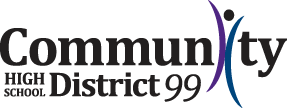Vocational Resources
The following information was submitted by Marsie Frawley, Senior Policy Analyst for Health and Disability Advocates in regards to the Social Security Administrations, Ticket to Work Program:
Ticket to Work – Practical Transition Advice for Youth with Developmental Disabilities
Gaining valuable work experience while in school is a goal to which all students can strive. There are many work incentives available for beneficiaries of Social Security disability cash benefits and applicable health care which all encourage working. Of particular interest to recipients of Supplemental Security Income, who are in any type of educational setting, under the age of 22 is the Student Earned Income Exclusion. This exclusion allows students to work and earn up to $6,600 annually, with NO impact on their SSI monthly cash benefit. The monthly threshold in 2010 is $1,640 in gross earnings and this amount changes as of January 1st each year. While it is important to remember that a SSI and Medicaid recipient may only have $2,000 in assets in any month, there is another work incentive available that affords individuals the ability to set aside money in a special account to pay for expenses that will help to achieve a vocational goal and eventually reduce dependence upon disability cash benefits. This work incentive is called the Plan for Achieving Self Support (PASS). A valuable resource for information is the 2017 SSA Red Book on Employment Supports.
Another valuable work incentive is the Social Security Administration’s Ticket to Work. The Ticket is a paper voucher (similar to a coupon) that students can use to receive free employment services and supports from an “Employment Network” or EN. An EN is an agency, organization, school or group of organizations that provide these services. The Illinois Division of Rehabilitation Services (DRS) is one Employment Network. For more information on the services and supports they provide, call (800) 795-9973 [TTY: (800) 524-9904]. To find additional Employment Networks in your area, call Maximus, the Ticket to Work program manager, at (866) 968-7842, or go to their Web site at www.yourtickettowork.com. As a voluntary work incentive, the beneficiary that receives the Ticket does not have to assign the Ticket immediately, but can wait until he/she leaves the school system at their 22nd birthday. Should a school decide to become an Employment Network, the Ticket can help to offset expenses utilized to provide transition services to beneficiaries receiving either Supplemental Security Income (SSI) or Social Security Disability Insurance (SSDI). The assignment of the Ticket requires that the beneficiary be actively involved in the plan. This encourages best practices in transition planning, as the EN will have to meet these outcomes in order to qualify for the Outcome or milestone payments.
There are professionals in Illinois who can help to navigate these work incentives. The Work Incentives Planning & Assistance Projects (WIPA) across Illinois and can be located by calling 1-866-968-7842 or 1-866-833-2967 (TTY/TDD) for the hearing 25 impaired. Or look in the service provider directory at: www.socialsecurity.gov/work.
PASS Plans - Another way for adults with developmental disabilities to achieve their employment goals
PASS, which stands for “Plan for Achieving Self Support,” is an often-overlooked transition option for people who receive SSI and/or SSDI benefits. PASS plans essentially allow eligible applicants to “set aside” some of their money (from government benefits, wages, or other sources) to purchase goods, services and training needed to met a specific career goal in a specified amount of time. The money that is set aside is not ‘counted” as income and the applicant continues to be eligible for Medicaid and SSI benefits until their goal is reached.
PASS plans can be incorporated into IEP transition plans, as well as in Individual Rehabilitation Plans (IRE) developed by DHS/DRS.
Additional information about PASS plans and Ticket to Work incentives from Marsie Frawley of Health & Disability Advocates was cited earlier in this manual in Section I. Technical assistance and information related to developing and implementing PASS plans and other issue is available from the Ticket to Work Program at Equip for Equality and from Health & Disability Advocates Workforce Development Project.
Several websites have detailed information about PASS plans, including case studies, samples of currently approved PASS plans, application forms and more:
- www.passplan.org
- https://www.ssa.gov/disabilityresearch/wi/pass.htm (official site of the Social Security Administration)
